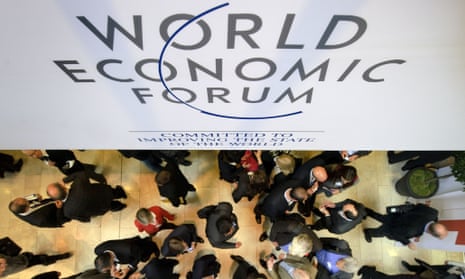Growing income inequality was one of the top four issues at this year’s World Economic Forum meeting, ranking alongside European adoption of quantitative easing and geopolitical concerns.
In a panel discussion on growth and stability on 24 January, senior editor at Fusion, Felix Salmon, said there was a consensus at this year’s WEF meeting in Davos that global inequality is getting worse. He said quantitative easing been expcted to result in the power of capital decreasing and that of labour increasing. Butthat has not happened. Instead, Salmon said the conversations he had had during the Davos summit revealed overriding pessimism over growing inequality. The result, he said, could be that the next big revolutionwill be in regulation rather than innovation.
Davos veteran Laura Tyson, professor of business administration and economics at the University of California, Berkley, said that much good work had been done on many fronts since the global financial crisis in 2008. But addressing income inequality was not among them.
Tyson said: “We have not done nearly enough about inclusive growth. We’re now having economic growth with increasing inequality. This is one of the things that I really worry about.” Tyson said her other big concern was geopolitical tensions in Ukraine and the Middle East: “One threatens fundamental upheaval of Europe; the other already involves many countries – Syria, Yemen, Libya.” She said tensions might be exacerbated by the death of Saudi Arabia’s King Abdullah and the call by Israeli prime minister Binyamin Netanyahu for more sanctions on Iran.
Session moderator Mark Leonard, director of the European Council on Foreign Relations, agreed that geopolitical tensions had come to the fore in this year’s Davos summit. “Because war is too dangerous, too expensive, this tension is being played out in economies,” he said. “There are growing sanctions and new trading arrangements. We are seeing a fragmentation of the global system.”
Panellist Helene Rey, professor of economics at the London Business School said the European Central Bank’s quantitative easing programme was necessary and would provide a breathing space, but is no silver bullet. ”If you want to be optimistic, QE can be regarded as the first step for Europe,” she said. “But let’s not underestimate the discussions that must be had on debt restructuring. And the need for structural reform, for instance, like the labour market in France where young people can’t get in.”
More from Davos:
- Punishing the rich is not the answer to inequality, warns top economist
- World leaders ‘failing on social cohesion’
Sign up for your free weekly Guardian Public Leaders newsletter with news and analysis sent direct to you every Thursday. Follow us on Twitter via@Guardianpublic
